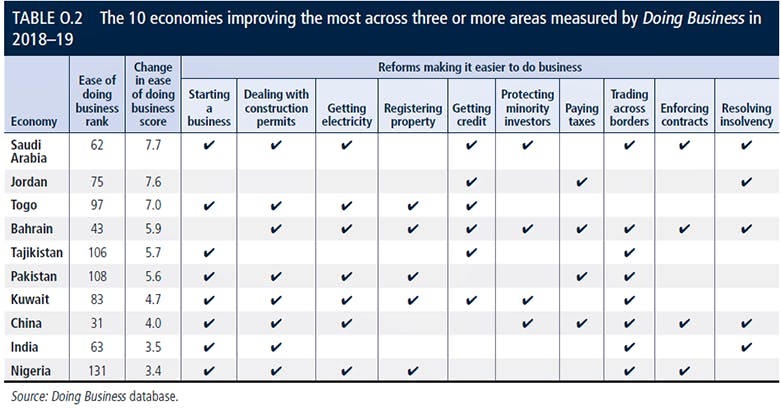There’s another place that is quickly overtaking the world as the “new Silicon Valley” and it’s not New York or London… it’s China!
The East Asian country has a vibrant and dynamic startup scene that has boomed in the last 10 years. China fosters a healthy business environment to incubating and cultivating startups. In fact, the country has risen to the top 2 spot in terms of global venture capital (VC). According to research, more than 100 Chinese startups and 34 unicorns were on stock markets across the world in 2017. The following year, Chinese startups rose to more than 270. 2021 has now been an even bigger year!
How did China do it? Here are 7 reasons China is becoming a favorable destination for startups.
Note: China Admissions has received investment from Chinaccelerator and SOSV in Shanghai, and also government funding. You can learn more here.
7 Reasons to Build Your Startup in China
1. Strong Chinese VC funding
Venture capital funding in China is one of the best in the world. The Chinese government has 358 guidance funds on the national, provincial and city levels with capital raising targets of US$ 665 billion. Foreign investment is also at an all time high. For example, in 2018, China broke foreign investment records for the first time in history by securing more funding than North American startups at US$ 30.9 billion.
________________
What about COVID in China now? Learn more about the update here.
________________
2. Highly supportive government policies
From tax incentives to financial policies, the Chinese government has played a proactive role in business law making to make China the most convenient place to start a business. Entrepreneurs enjoy lower tax rates, lower tariffs, easy business registration, simpler importing and exporting process and protection of minority investors.
In its “Ease of Doing Business’ report in 2020 by the World Bank, China ranked 31st among 190 countries and joined the ranks of the world’s top ten most improved economies for the second year in a row thanks to a robust reform agenda.

3. Expanding consumer market
Over the last decade, Chinese officials have promoted consumerism as the catch phrase for China’s rise as an economic global power. Today, China is the world’s fastest-growing consumer market, with its middle-class as the major force driving the increase. The country’s retail sales of consumer goods reached 3.81 trillion yuan ($540 billion) in 2019 closing the gap to $280 billion between China and the US.
4. Rapid increase in entrepreneurial spaces
The expansion of entrepreneurial spaces are vital in China’s startup landscape. There are currently 4,300 creative spaces, some 3,300 incubators and 400 accelerators in China, and with government incentives, these numbers are expected to increase every year. China’s entrepreneurial spaces have helped thousands of startups get funding.

5. Numerous global startup ecosystems
China is one of the few countries in the world with numerous global startup ecosystems that are on equal footing. Beijing, Shanghai, Shenzhen, Hangzhou and Wuhan are the most notable Chinese megacities that have nurtured the best startup scenes in the world.

6. Highly efficient operations
With enough funding, the active use of technology in business and fair business practices, running a startup in China is capital, time and resource efficient.
7. Affordable labor cost
China has a labor cost advantage among developing countries. With its high regard for quality education and work ethics, China has one of the most skilled professionals in the world, and an affordable one at that.
Give yourself an edge – study MBA in China
Chinese business schools occupy the Financial Times’ top 50 MBA rankings every year. Some of the best performing MBA schools include:
- China Europe Business School (CEIBS)
- HKUST Business School
- Fudan University School of Management
- Shanghai Jiao Tong University: Antai
If you’re still undecided, you can also enroll in the Online Program in Chinese Business launched by the prestigious Shanghai Jiaotong University (SJTU). With over 100+ topics, the Chinese business online program will cover past, present and future trends of doing business in China. After completing a minimum number of 4 full day topics (24 hours) participants are eligible to be awarded the SJTU Online Chinese Business Certificate. You can apply for the program here.
Request Free Information
Search for a list of MBA programs or complete the form below to request free information.
Read Related Topics:
Should entrepreneurs do an MBA?
Planning to Start a Business in China? 4 Chinese Business Laws Every Foreigner Must Know
Why NOW Might Be A Great Time To Apply For An MBA In China!
10 Compelling Reasons to Study MBA in China
- 5 Tips to Get a Scholarship in China this 2025 - July 16, 2024
- Study MBBS in China: Admissions Guide for 2024! - June 12, 2024
- 8 Universities in China with the Best Online Chinese Programs for 2024 - June 2, 2024
